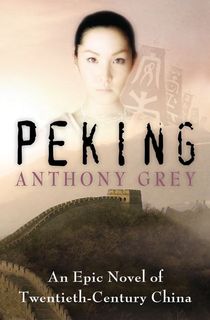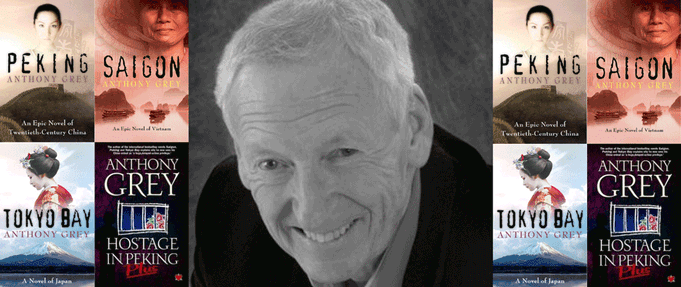Anthony Grey, a novelist, radio and television broadcaster, and public speaker, sadly passed away earlier this month.
In July of 1967, Grey made international headlines while working for Reuters in Beijing. There, he was covering China’s Cultural Revolution, when he was taken and held hostage by the Chinese government in the basement of his house.
Under the command of Mao Tse-tung's Red Guards, Grey spent over two years in solitary confinement. He quickly became one of the most publicized prisoners of the Cold War era. Jailed for spying, but really in retaliation for the colonial British government having just taken eight pro-Chinese media journalists.
Once he was released in October 1969, he returned to Britain, where he was awarded the "Journalist of the Year" prize at the IPC National Press awards and an Order of the British Empire (OBE).
Grey went on to document his experiences in confinement in Hostage in Peking, before becoming a notable historical novelist. His novels include Peking, Saigon, Tokyo Bay, and many more, offering optimistic outlooks on harmony between diverse nations and cultures.
Between 1974 and 1979, Grey also worked as a presenter for 24 hours, a programme on the BBC's World Service. In the late 80s, he used his experience as a political hostage to found Hostage Action Worldwide, which helped free other political hostages.
Grey is survived by his two daughters.

Peking
Journeying to China in 1931, Jacob Kellner, an English-born missionary, is intent on spreading his untried Christian faith and ending Communism.
But soon, he falls head over heels with Mei-ling, a charming and passionate revolutionary, who challenges him and his devotion. Described by the Financial Times as “an excellent read [and] panoramic in scope,” follow along on a journey of tragedy, triumph, and above all, love.

Saigon
As a young man, Joseph Sherman first visited Saigon on board his father’s hunting trip in 1925. Time and time again, though, the land—and a special someone named Lan—called for him to return.
Over the next five decades, Joseph puts down roots in Saigon and witnesses Vietnam’s dramatic changes, from the coolies revolting against the French to the arrival of the US military.
As acknowledged by the San Francisco Chronicle, “This superb novel could well be the War and Peace of our age,” through “using a technique of historical progression, author Anthony Grey does for the Vietnam wars what Leo Tolstoy did for the Napoleonic wars.”

Tokyo Bay
For over two hundred years, Japan’s tributary lands and its people have remained undisturbed by the rest of the world. That is, until Commodore Matthew Perry arrived in July 1853, with the objective of opening Japan to American ships by whatever means necessary.
Navy lieutenant Robert Eden quickly sees how his superior’s colonial intentions will play out in bloody, sword-wielding terror. Instead, he opts to pursue non-violent means and enters a world of warriors, geishas, and a population that views him as the enemy, unless he can prove otherwise.
